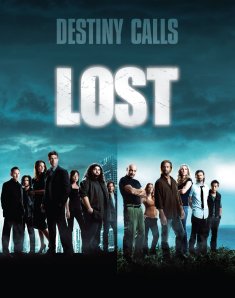This started out as a comment to the post on Confessions of a Serial Mapper, but when it annoyingly failed to go through and I couldn’t retrieve the comment, I decided to blog about it instead. Mostly because I tend to get long-winded when I’m making a point, so it was bound to become long enough for a blog post itself.
As far as the Tomb Raider series goes I am a part of a seemingly unrecognised group, one between the complete n00bs and the diehard fans. When I was a youngling, I had the potential to become a true Girl Gamer. Unfortunately, all games and all consoles belonged to my brothers (naturally. I was a girl, why would anyone buy me any games?), so once their interest was either lost, as in the case of one brother, or moved away from games I wanted to play, in the case of the other, my own interest diminished. But for a few brief, shining years we were all enormous fans of Tomb Raider.
I have no distinct memory of the first two games, although I know we owned them and played through them on our loyal PlayStation. This is probably because I never played through the entire game on my own– instead it was a joint effort between myself, the eldest of my brothers, and a family friend. I played segments of the game, which is probably why the storyline of Tomb Raider never meant anything to me; I was all about the puzzle-solving and the leaping around maps. The third game I played through on my own (I remember my fury when my inconsiderate brother saved over my game, meaning that I had to start all over again). My memories of playing that game are ones of frustration. It took me ages to solve the puzzles (which were so obvious once you knew what to do), and I was forever frustated with Lara, who never seemed to do what she was told.
Let’s be fair, though. Who wasn’t frustrated with Lara? It certainly wasn’t just me. It seems to be the enduring cultural memory of the game, just behind her… assets. Two of my favourite scenes of Spaced involve Tomb Raider III: one in which the main character continually drowns Lara in order to assuage his own frustrations, and one in which the same character is mistaken for shouting at and insulting his flatmate– when in reality his yells of, “You can’t shoot straight, you big-titted bitch!” are directed at Lara. Being frustrating does not seem to be a flaw with Tomb Raider. Strangely it seems to be one of its main appeals.
So, onto my main point. One of Rokusho’s main gripes with the latest Tomb Raider game, Tomb Raider: Underworld is that it doesn’t bring anything new– it is simply a repackaged and prettier version of the existing games. Whilst this may be true, I think it also misses the point of what appeals about Tomb Raider to those of us who aren’t massive gamers, but who are familiar with the game. I am playing through Underworld mostly as an exercise in nostalgia. It is similar enough to the old games to be familiar and fun, and different enough not to be the same game over again. The storyline may be recycled, but people who play Tomb Raider for the same reasons I do do not care about the storyline. I couldn’t tell you the story of the first three, and I’d struggle to tell you the story thus far of Underworld, and I only played it last a few days ago. I do not care why Lara is doing what she is doing, or what greater goal I am meant to be playing towards. The fun is in the here-and-now puzzling of the game, in pulling levers and jumping across ledges and working out paths across various maps.
Quite probably I’d enjoy some of the in-between Tomb Raider games I’ve missed, but so far there is nothing about Underworld that leaves me wanting. The camera controls annoy me, Lara consistently seems to do things I don’t tell her to do (or so I will maintain), and the puzzles are generally unnecessarily complicated until I’ve actually worked them out. But this is what I fondly remember of Tomb Raider: she may seem to be a dead horse that doesn’t need to be flogged anymore, but I am a child of the Nineties, and Lara Croft is an enduring icon of that time. I am not playing Tomb Raider for anything new. I am playing for the exact same reasons I was playing for when I was ten years old.

